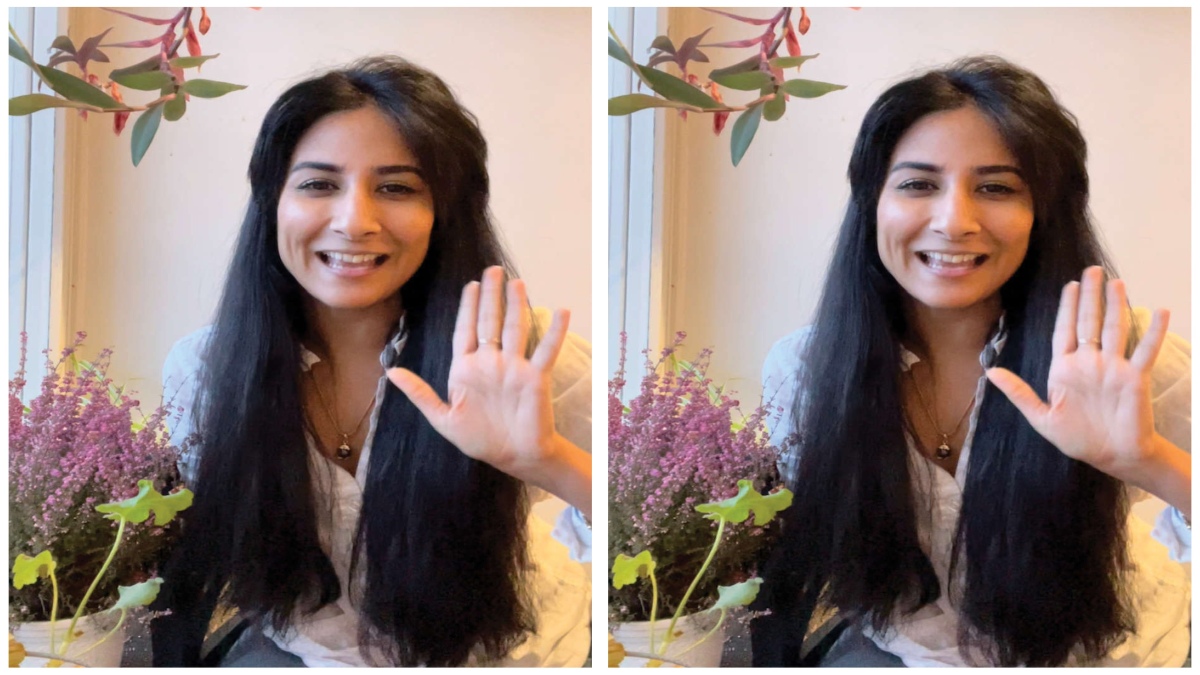A long time ago in a bus traveling from Jaipur to Delhi, Anjani found herself contemplating the need to be happy after an enjoyable, fulfilling holiday with her family and friends. Counting her blessings, a wonderful family and set of friends, and recounting the fun-filled memories that made the past few days, Anjani had every reason to be happy. But here was the catch- she still found herself asking the familiar question: Do you still wish you were dead? And the answer, sadly, was a big resounding YES! Anjani spent the rest of her bus ride to Delhi in profound relief. Finally, she would no longer have to feel this way for much longer. It would be when she had reached her final destination, Sweden, that Anjani thought she could start preparing for the end.
Thirteen years later, positive psychologist Anjani Singh joins Rajputana Collective in sharing the one concept that changed her entire life. What could be the one tipping point that caused a once crestfallen girl to turn over a new leaf and catapult to the other end of the emotional spectrum, as a professional in the field of emotional healing? After all, an existentialist shift of such radical proportions is mostly seen in a situation of divine intervention or providence. But in Anjani’s case, it was sheer earthly serendipity. Here’s how.
After that fateful bus ride, she was greeted in Delhi by her uncle, who handed over a book that he expected her to read. ‘The Power of the Subconscious Mind’ by Dr. J. Murphy. “I did not have the heart to refuse his gift especially since I was truly grateful for the gesture, so I just graciously accepted”, Anjani retrospectively explains. A week later, Anjani found herself listless with nothing to do at hand, so she curiously picked up the book that she earlier lacked the tiniest intention of reading. She was instantly captivated. In Anjani’s own words, “The book redefined what I assumed of the world. It was about how our thinking has a dramatic effect on how we feel and behave, and eventually on who we become. Prior to the book, I thought everything was sort of fixed, that things were out of our hand, especially the things that we felt. I believed pain and unhappiness just happened to us. The book, on the contrary, taught me how much of what I felt and what I was doing in my life was simply a reflection of my thoughts. When I started to consciously alter my thoughts, my life changed dramatically. And so started my love and interest in positive psychology.”
From then on, there was no looking back. Anjani proceeded to take a class on positive psychology from Antioch University and another online class provided by Harvard. Today, she is happier, more resilient and grateful than she has ever been, and has found her life’s purpose in spreading positive emotional psychology to touch the life of every child on this planet, such that everyone has the opportunity to live a fulfilling and loving life.
A rapidly growing field and easily the most popular class for almost a decade at Harvard, what exactly is this trending branch of psychology that most of us have heard so little about?
It so happened, that after observing the world’s saturation with studies and research on anxiety, depression and psychopathology in general, one psychologist called Martin Seligman decided that maybe it’s time to study happiness. In other words, to analyse happy people and how despite hardship and multiple failures, how some people are able to stay optimistic and have fulfilling and happy lives. How people are able to bounce back without falling into deep depression even after looking adversity in the face, such as the loss of a loved one, a failure of their business, divorce, a terminal illness, so on and so forth. Many other scholars, such as Tal ben Shahar, Carol Dwek, Barbara Fredrikson, etc. joined Seligman’s pursuit and here’s what they found out. That one of the most fundamental reasons behind better resilience and optimism was not a forced effort to stay positive and happy all the time. Rather, it was the choice to opt to factor in the positives despite whatever adversities one might encounter in their lifetimes. Through consistent self-motivation in practices such as gratitude, positive thinking and undertaking a growth-based mindset that believes in social support, psychologists found that happiness went beyond mere survival. All in all, that character strengths and behavioural changes genuinely allowed individuals to build a life of meaning and purpose.
Even after understanding the concept of positive psychology in a nutshell, it is easier to comprehend why our world’s largest cooperations are seeking consultancy in positive psychology, and why an increasing number of educational curriculums have begun demanding the same. For example, the Government of Delhi under the Aam Aadmi Party introduced the Happiness Curriculum in 2018 based on similar convictions.”It turns out that happy employees actually work harder and have better brain function. Research shows that brain function can be boosted by about 31% if simply put in a good mood. Similarly, children who learn to regulate their emotions positively are able to handle setbacks better and are far less likely to suffer from anxiety and depression. These children have also reported improving relationships in schools and at home. The reason people all over the world are getting more and more curious about positive psychology is that deep down inside, we all want the same thing from life, and that is happiness”, Anjani adds.
At this juncture, Anjani points at a more nuanced feature that the concept’s more obvious simplicities hide- “It is possible for you to start becoming happier today with simple practices. But there’s also bad news, which is that happiness, like everything else, is gradual and requires conscious and continuous practice and effort. In simpler words, there is no quick fix. Contrary to popular belief, happiness is not going to be achieved by getting that dream job or getting the love of your life, or that house you wanted or reaching the goal that you might have been working all your life for. Those goals will only bring you a short moment of joy. Happiness will not just come to us. On the other hand, we have to build our own happiness.”
Reflecting back on personal experiences, Anjani admits to not undergoing an overnight transformation herself. But through conscious effort and practice, Anjani presents herself as a living example of the power of positive psychology. She concludes, “Today, I can’t even recognise that sweet, hurt, angry, broken-hearted sad little girl sitting on the bus. Ever since I read the power of the subconscious mind, I have never wanted to kill myself again. I have been through many ups and downs ever since, and yet, because of implementing positive psychology into my life, I sit here feeling happier than ever before, and so very very grateful to be alive.”













